| 
 hey
are smart, connected, and a growing force in the air cargo business right
now and into the future. hey
are smart, connected, and a growing force in the air cargo business right
now and into the future.
But if presenting the story of the women at Delta Cargo in Atlanta is
perhaps overdue, their words makes it clear that the path (at least in
some quarters) is paved for more women to place themselves front and center
in the conversation.
These ladies are not just “other voices,”
but rather part of a growing, collective sensibility about air cargo that
balances our industry and is an obvious critical element to any success
we hope to achieve as business moves forward.
Best of all, much of what is said here makes
good common sense, and reads well.
To a generation of air cargo industry types
who grew into this business when men dominated, reading this story recalls
the 1930s movie actor Ginger Rogers who starred in countless film epics
as dance partner to Fred Astaire.
Ginger did everything Fred did, but she
did it backwards—and in high heels.
We begin our story from that point of view.

“There is now critical mass around
e-freight in a difficult marketplace, shipper needs are changing and we
need to change too,” said Dana Sample, Manager Distribution Planning
and ecommerce, a big time responsibility that encompasses the implementation
of e-freight and the deployment of the go-to dedicated website—deltacargo.com.
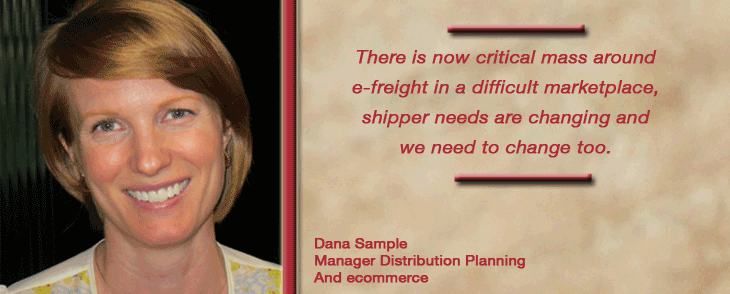 |
“It’s a case of lead or be
dragged; Delta Cargo will lead,” Dana said.
She went on to state “we are using
strong standards and innovate so that we can work smarter.”
Dana managed re-launch of the website, which
is now also available in Japanese, German, and Spanish. Phase II—which
is a significant investment—involved adding more functionality,
including customer specific login and an overall more robust customer
experience.
She and her team can now prioritize enhancements
to the website independently.
Dana joined Delta Air Lines four years ago
after holding positions at Booz Allen Hamilton and as account manager
for a B2B software solutions company.
She holds a BA in Public Policy Studies
from Duke University and an MBA from Emory’s Goizueta School of
Business.
A mother of two, Dana resides in Atlanta
with her husband.
Asked what is the biggest misconception
about Delta Cargo when she speaks with customers, Dana was spot on:
"They are not aware of the capabilities
that our investment over the last two years has brought about and how
far we have shot forward—just look at messaging,” she said.

Kristen Jones is Manager Strategic Partners
for key accounts, having joined Delta Cargo one and a half years ago.
Kristen is Chicago-based but, at 26, flexible
enough to—as she puts it—“Live on an airplane.”
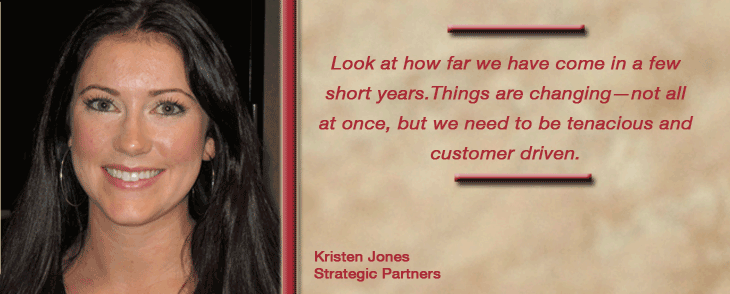 |
Kristen is in charge of two global and
five domestic high-value accounts, and she travels 60-70 percent of the
time.
She comes from a transportation family;
her mom has been working in the industry for over 20 years.
Kristen decided early on she wanted “to
be in cargo” and while studying as a pharmacy student, worked part-time
in freight forwarding as import coordinator. Prior to joining Delta Cargo,
she worked for a GSA representing 19 airlines as regional sales manager
southeast.
“I am the corporate contact to the
key decision makers in those companies,” Kirsten says.
“I enjoy working for an airline more
than for a forwarder—there are more opportunities and options; I
enjoy the culture of Delta Air Lines.”
Kristen Jones said that she focuses on making
it her business to know what other carriers are doing that Delta might
not be not doing, and how to make things better all around.
“Look at how far we have come in a
few short years, she said.
“Things are changing—not all
at once, but we need to be tenacious and customer driven.”

Danita Waterfall-Brizzi is Director Cargo
Sales and Service Europe, Middle East, India, and Africa, based in Frankfurt
am Main, Germany. FlyingTypers visited Danita and her team last
summer.
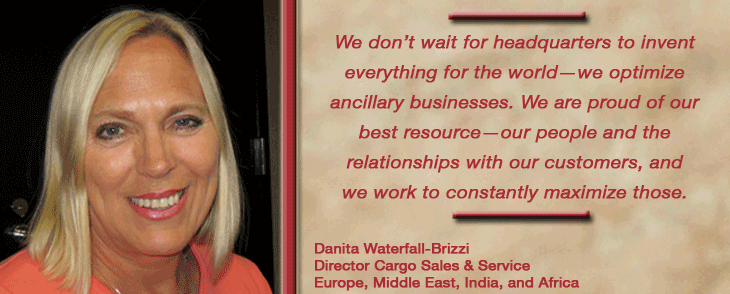 |
Now with the advantage of some perspective,
as she has been at her post since 2009, Danita says “our evident
network strategy is not a ‘phase’; the alliance strategy has
worked well and is focused on year-round wide body service that corresponds
to customer needs.”
One look at Delta’s fleet choices
underscores that statement.
Meeting shipping needs are reflected in
Delta’s fleet choice over the transatlantic. “Working out
a much closer relationship with the passenger side has benefited our operational
capabilities.”
“We don’t wait for headquarters
to invent everything for the world—we optimize ancillary businesses.
“We are proud of our best resource—our
people and the relationships with our customers, and we work to constantly
maximize those.”
“Delta Cargo continues to enhance
operational processes and to harmonize with our joint venture partners
[AF/KL and AZ] in an all-out effort to streamline the quality of our combined
offering to our customers.”
“For example, Delta’s Equation
Express [Equation is an international flight-specific express small package
service] is the hottest product, however, there is also a different demand
in the current market conditions, as the pharma business is now a prime
business driver.
“So Delta Cargo has established a
master lease agreement with Envirotainer to provide temperature controlled
ULDs to its customers, making it simpler for them. “Elsewhere, tests
are ongoing in India for CASS and there is work in progress on enhanced
key accounts in Europe.
“Also the textile business from India,
Sri Lanka, and Bangladesh serve as feeder cargo for Dubai and Europe flights,”
she said.
During our conversation, Danita makes her
points in English, but she can also speak Russian, German, Italian, and
French.
Danita served Delta Air Lines in management
roles on the passenger side based in Frankfurt, London, and Moscow before
joining cargo in 1996, but, of her cargo experience, she has “never
looked back!”
In her current post she oversees GSA and
Delta staff at 50 on and offline stations in 33 countries.
Danita hails from Seattle, Washington, is
married, and has one daughter.

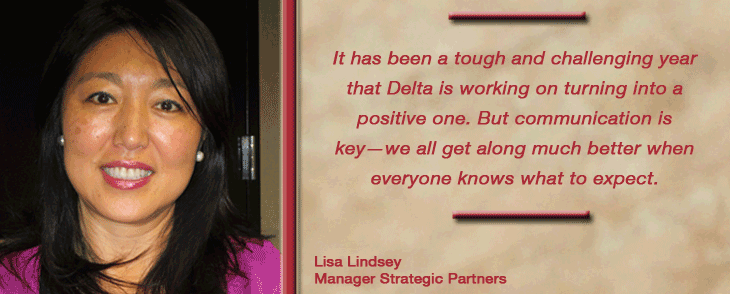 |
Lisa Lindsey joined Delta 17 years ago and
has been Manager Strategic Partners for the last 3 years, based in Atlanta.
With a customer service and sales background,
she looks after global accounts in Europe and the U.S.
“Global business attracts me the most—I
find the personal relationships make this a gratifying position,”
Lisa insists.
“Delta is a corporation with a vision
and a plan and we are successful at what we do.”
Born in Seoul, South Korea, Lisa has lived
and worked in Hawaii, Arizona, and Atlanta. She speaks fluent Korean and
enjoys travel and exploring different cultures, with the belief that “roots
and language are important.”
About the current business climate, Lisa
admits “it has been a tough and challenging year that Delta is working
on turning into a positive one,” and mentioned pharma as such an
opportunity to add some buoyancy to the cargo mix.
Another is “educating the customers
on the benefits of paperless cargo,” she said.
“But communication is key—we
all get along much better when everyone knows what to expect,” Lisa
Lindsay assures.

Leticia Mikovenyi is Delta Cargo Manager
U.S. Domestic Revenue Management.
Talk about expanding ones horizons, Leticia
was born in Rio de Janeiro, Brazil, and although she speaks native Portuguese,
her married name is Hungarian!
Leticia holds an MBA from Lancaster University
in the UK and a BS in Economics from the Federal University of Rio de
Janeiro, and holds a not-so-secret passion about business.
“I am a numbers girl,” she assured.
Leticia joined Northwest Cargo in 2006 in
revenue management and moved to Atlanta in 2009.
She previously worked for United Airlines
in passenger revenue forecasting and pricing, and in Brazil as a management
consultant with Arthur D. Little as pricing analyst for Shell Oil.
“The job has changed a lot from when
I started at Northwest.
“Today Delta Air Cargo serves a domestic
market double the size of NWA.”
In her current position, “cargo moves
mostly point-to-point and consists of express and perishables,”
Leticia said.

Alexandra Clayton's move from the ocean
freight business to air cargo occurred when she first met Ray Curtis,
Vice President, Delta Air Lines Cargo Global Sales, during “Super
Ray’s” term at United.
“I got the cargo bug passion,”
she declared.
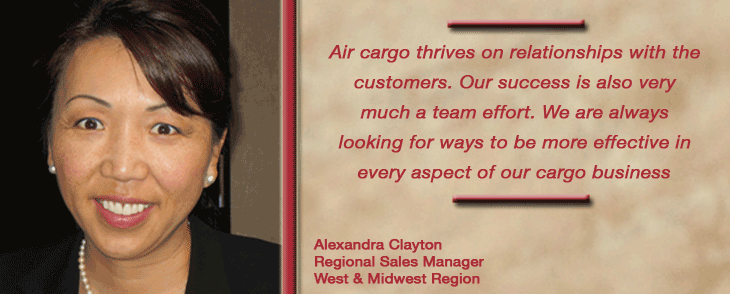 |
Alex has spent time with BA Cargo and Polar
Air Cargo by following her husband’s career moves with some pretty
nifty activities of her own.
Alex was born and raised in Japan and came
to the U.S. when she was thirteen.
She holds an MBA from the University of
Denver and a Master of Education and Human Resource Studies from Colorado
State University and is a certified Six Sigma Black Belt.
Alex joined Delta Cargo as Regional Sales
Manager West Region one year ago; her responsibilities were recently expanded
to include Minnesota and other mid-west U.S. States.
Today Alex has Delta Cargo responsibility
for export generation across 11 states including Alaska, California, Colorado,
and Hawaii.
But whatever the area, business once again
comes down to one simple fact, as Alex says:
“Air cargo thrives on relationships
with the customers.
“Our success is also very much a team
effort.
“We are always looking for ways to
be more effective in every aspect of our cargo business.
“Delta Cargo thinks the best is yet
to come,” Alex smiled.

Natasha Hill is Manager U.S. Space Control,
a position she took over four years ago when she moved to Atlanta from
her previous occupation at Northwest in network planning and analysis.
Her experience included revenue management
and analyzing pricing and yield for export cargo to Europe, the Middle
East, India, and Africa as well as export and import for Latin America.
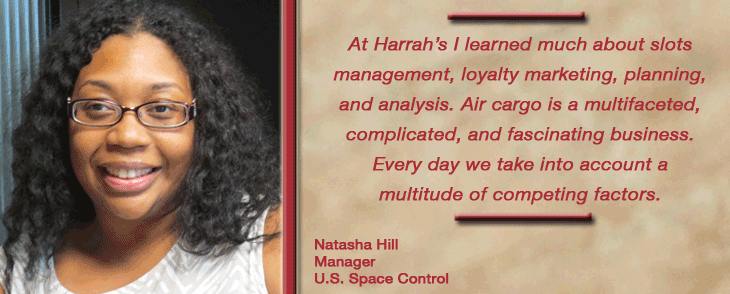 |
In essence, Natasha’s role is to
ensure the optimal balance between service commitments and maximizing
revenue by managing available capacity.
This effort requires much intradepartmental
coordination and constant tracking of cargo bookings and trends, forecasting
capacity, and ongoing validation of the space control model.
Natasha Hill fields a team of six flight
analysts who are at this job seven days a week.
“There is close coordination with
the revenue management group,” Natasha said.
Natasha hails from Chicago and holds a Bachelor’s
degree in Economics and Sociology and MBA from the University of Notre
Dame in Corporate Finance and Investing.
Interestingly, prior to going into the airline
business, Natasha worked in the gaming industry for Harrah’s Entertainment.
“At Harrah’s I learned much
about slots management, loyalty marketing, planning, and analysis.
“Air cargo is a multifaceted, complicated,
and fascinating business.
“Every day we take into account a
multitude of competing factors using a priority guide by product, adding
rules to reflect changing conditions such as weather and detailed post-departure
analysis in evaluating forecast versus actual performance,” Natasha
said.
Ted/Geoffrey/Flossie |





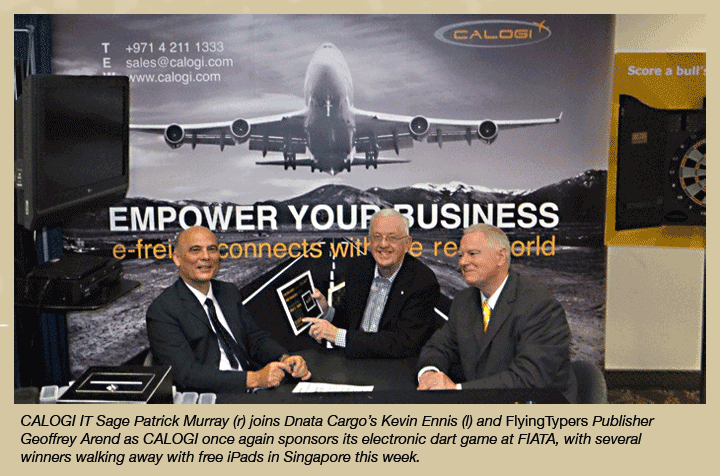




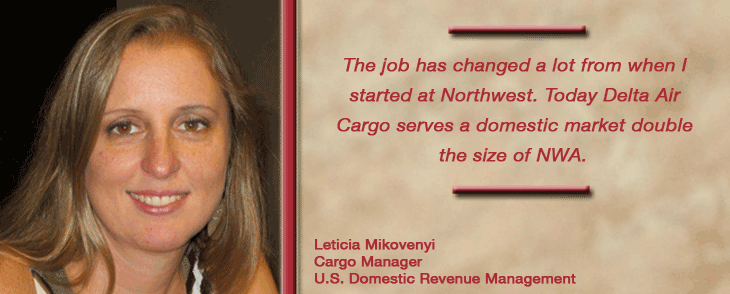



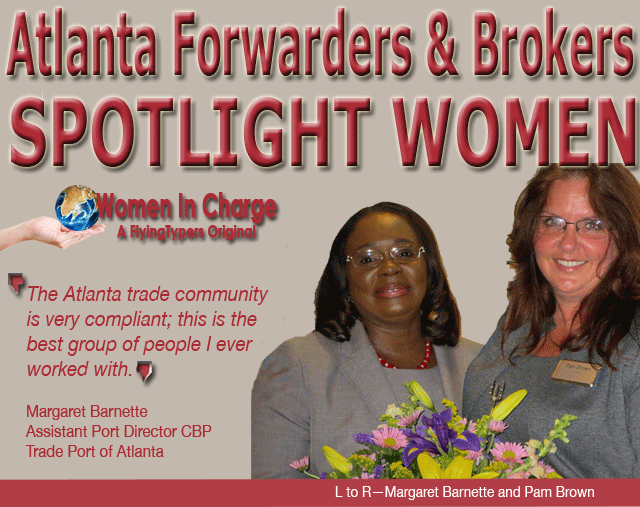
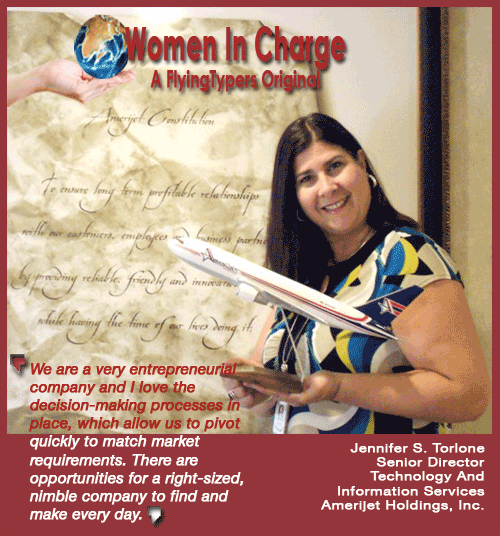
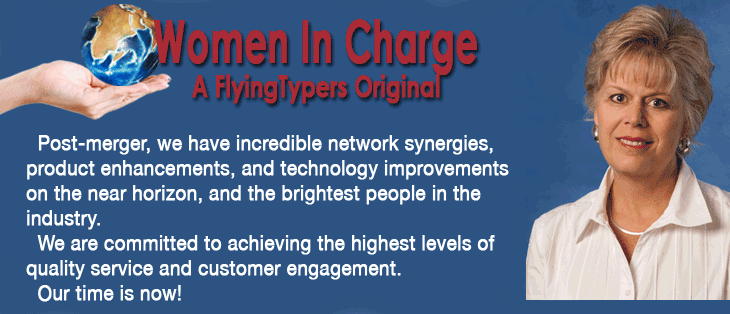
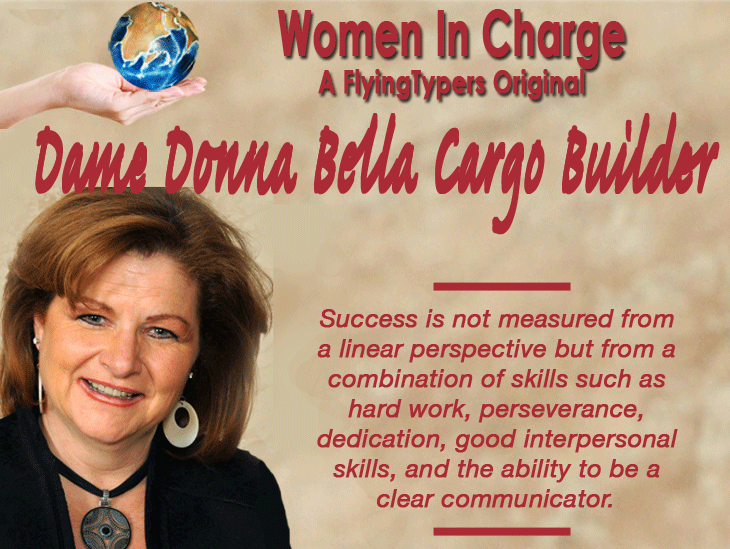
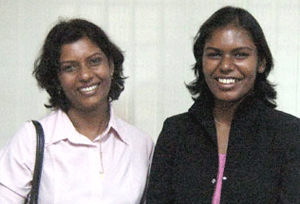


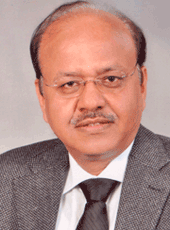 The
airport’s current capacity utilization is up-ticking nicely to around
12.5 million passengers, out of a capacity of 23 million. The airport
will reach 100 percent utilization by 2017-18, after which it will expand
and the capacity will increase to 40 million.
The
airport’s current capacity utilization is up-ticking nicely to around
12.5 million passengers, out of a capacity of 23 million. The airport
will reach 100 percent utilization by 2017-18, after which it will expand
and the capacity will increase to 40 million.